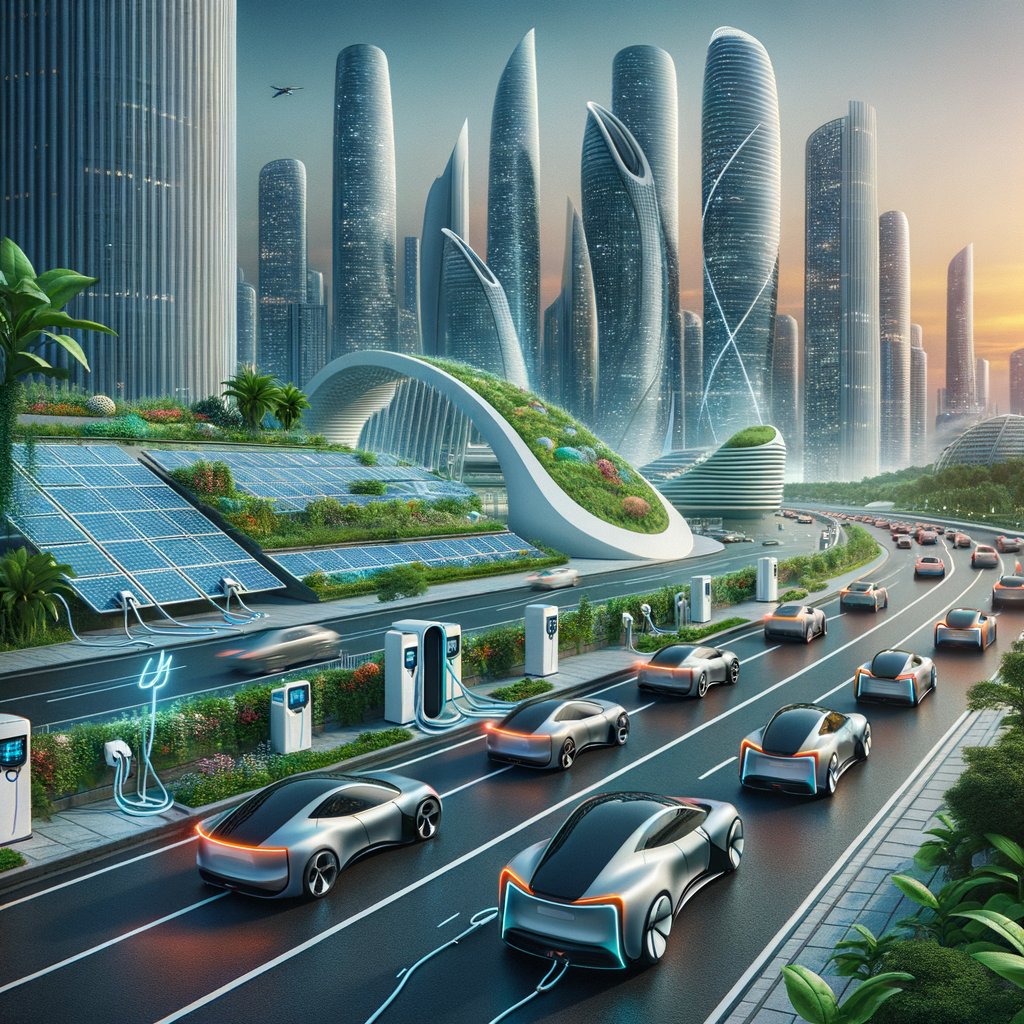Physical Address
304 North Cardinal St.
Dorchester Center, MA 02124
Physical Address
304 North Cardinal St.
Dorchester Center, MA 02124

The automotive industry is undergoing a seismic shift. The advent of electric vehicles (EVs) has sparked a revolution, promising to transform our roads and redefine the very concept of mobility. As we stand on the precipice of this new era, it’s crucial to understand what lies ahead for EVs – the innovations that will shape their future and the challenges they must overcome.
Electric vehicles are no longer just an idea; they’re here, growing in popularity, and continually evolving. Technological advancements are at the heart of this evolution, propelling the industry forward.
Perhaps one of the most significant areas of advancement is battery technology. Lithium-ion batteries have long been favoured for their high energy density and long lifespan. However, they come with their own set of drawbacks such as high costs and concerns over lithium mining practices.
Enter solid-state batteries – a game-changer in electric vehicle technology. Unlike traditional lithium-ion batteries that use liquid electrolytes, solid-state batteries utilise solid electrolytes which can potentially offer higher energy density, improved safety, faster charging times and longer lifespans. Companies like Toyota and QuantumScape are already investing heavily into developing this innovative technology.
Another innovation shaping the future of EVs is autonomous driving. Self-driving cars were once relegated to science fiction but are now becoming a reality thanks to advancements in artificial intelligence (AI), machine learning (ML), and sensor technology.
While fully autonomous vehicles aren’t yet commonplace on our roads, many electric vehicles now feature advanced driver-assistance systems (ADAS). These systems utilise AI algorithms to interpret data from multiple sensors, enabling the vehicle to react in real time to its surroundings and assist the driver.
Imagine driving your electric vehicle into a parking space and having it charge without plugging in a cable. That’s the convenience wireless charging offers. Though still in its early stages, this technology uses electromagnetic fields to transfer energy between two objects, allowing for cable-free charging.
While there are still technical hurdles to overcome, such as efficiency and cost, wireless charging has the potential to drastically improve the EV user experience and accelerate adoption rates.
Despite these exciting innovations, electric vehicles face significant challenges that need addressing before they can truly dominate the automotive market.
“Range anxiety” is a common concern among potential EV buyers. This term refers to the fear that an electric vehicle won’t have enough range to reach its destination before running out of power. While advancements in battery technology are helping alleviate these concerns, more work needs to be done.
A robust charging infrastructure is essential for widespread EV adoption. However, many regions lack sufficient public charging stations. This lack of infrastructure not only exacerbates range anxiety but also poses practical issues for those living in apartments or without access to home charging options.
The initial purchase price of electric vehicles remains higher than their internal combustion engine counterparts due to expensive components like batteries. Despite lower operating costs over time, these high upfront costs can deter potential buyers.
The future of electric vehicles is undoubtedly bright but not without its challenges. As we look ahead, it’s clear that continued innovation is key to overcoming these hurdles. From advancements in battery technology to the development of autonomous driving capabilities and wireless charging, EVs are poised to redefine our concept of mobility.
However, for this future to become a reality, we must also address the challenges facing electric vehicles. This includes improving battery range, building out charging infrastructure, and bringing down upfront costs.
The journey towards a fully electric future is an exciting one, filled with promise and potential. It’s a journey that will not only transform our roads but also our relationship with cars and mobility as a whole.